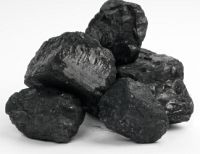

According to new research published in the Journal of Geophysical Research-Atmospheres, soot, or black carbon, is making a much larger contribution to climate change than previously thought; so-much-so that it could even be ranked just below carbon dioxide as the most important climate-warming substance.
The research says that such black carbon emissions in Europe and North America have generally been declining, but have been growing in the developing world. However, as the particles do not last very long in the atmosphere, cutting the amount of such particles in the atmosphere would have an immediate effect on temperature.
Professor Piers Forster said, "Reducing emissions from diesel engines and domestic wood and coal fires is a no-brainer as there are tandem health and climate benefits." He added, "If we did everything we could to reduce these emissions we could buy ourselves up to half a degree less warming, or a couple of decades of respite."
However, Professor Forster warns that mitigating the emission of black carbon is complex, because it is often emitted with other particles and gases which actually may cool the climate. "For instance, organic matter in the atmosphere produced by open vegetation burning likely has a cooling effect. Therefore the net effect of eliminating that source might not give us the desired cooling."
The authors of the research stated that whilst cutting back on soot is important, cutting carbon dioxide emissions is the best way to address climate change in the long term.